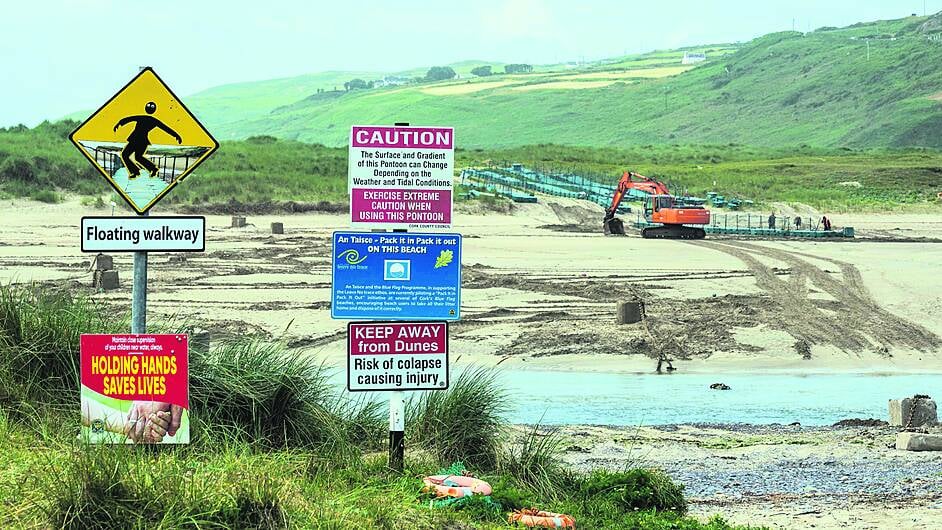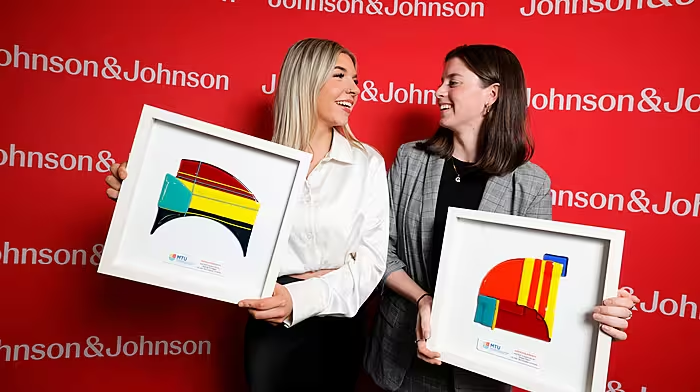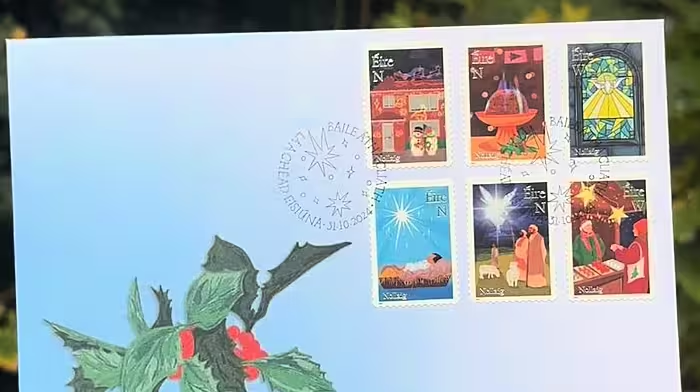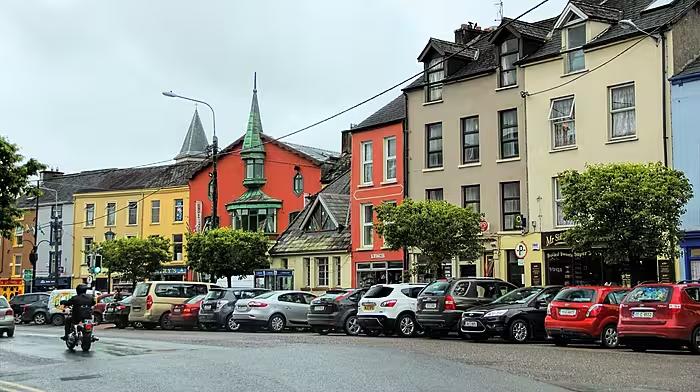Environmentalist Tony Lowes has taken issue with TD Michael Collins’ (Ind) belief that we should abandon carbon targets for now, and use fossil fuels to get us through the energy crisis. But, he argues, the deputy’s stance is understandable and, regrettably, has a lot of support
DEPUTY Michael Collins represents the thoughts not only of many of his constituents but of the wider public as well (‘Forget the climate for now’, Southern Star, October 8th.)
That this is so represents the failure of the ‘environmental community’ – including myself – to make the case for the urgent fundamental changes that are required to prevent the growing and almost unthinkable horror that climate-related impacts are already inflicting on so, so many people – almost all of them the least guilty of the actions that are bringing an end to civilisation as they have known it.
Even worse, the words and actions of organisations like ours and people like me seem to have made matters worse, not better – ‘setting up conflict’; ‘polarising’; ‘inflaming’; ‘infuriating’ – parroting science has not changed hearts.
I find it hard not to remember an interview with then TD Luke ‘Ming’ Flanagan and his late father on RTÉ about 10 years ago, opposing the end of turf cutting on our last protected raised bogs. Smart Dublin-based environmentalists and Brussels-based EU Commission officials had been continually harping on about the vanishing biodiversity, the loss of flora and fauna.
‘What did flora and fauna do for anyone?’, Luke’s father asked. Flora means plants. Fauna means animals. A BLT – bacon lettuce and tomato – is, like all food, flora and fauna. Deputy Collins is eloquent on behalf of his constituents. He derides the ‘green nirvana’ and the ‘suicidal’ net zero targets. He says the situation is so dire the Government ‘must choose between saving the economy and saving net zero’.
And he is effective. The deputy and his colleagues succeeded in cancelling the legally binding increase in carbon tax this year – not by doing so outright, but by having cancelled the public service obligation (PSO) charged to all electricity customers in Ireland – in spite of the fact that this was only put in place recently to replace the peat PSO and to fund the generation of electricity from sustainable, renewable and indigenous sources going forward.
Derogations rule. Nitrates from farming are the principal cause of the unbelievable and growing pollution of our waters with the knock-on effect on biodiversity loss (flora and fauna) and drinking water quality.
Loss of nutrients from agriculture have increased in recent years as a result of the ongoing expansion of the agriculture sector, after the lifting of milk quotas and government policies like Food Harvest 2020 and its successor Food Wise 2025.
We now have the highest agriculture emission contribution towards national total emissions of any EU member state.
Aside from CO2 – the ‘leading’ greenhouse gas – recent research shows that unless we radically reduce the emissions of methane, we will not be able to reach the Paris agreement’s goal of keeping global warming below 1.5 degrees. Methane is a short-lived greenhouse gas – say 10 years, as opposed to the centuries CO2 will last – but it is more than 80 times as powerful as CO2. Cutting it is fast and incredibly effective.
The Irish production of methane is 93% due to Irish farming. It comes from livestock. While new slurry pits must have covers, the mandatory covering of existing slurry pits was delayed by IFA pressure until ‘no later than the end of 2027’.
And as to the deputy’s support for LNG, liquid natural gas is two-and-a-half times worse in emissions than gas piped from the Corrib, the UK or France.
Focusing on CO2 alone cannot keep the world within the 1.5 degrees required by the Paris Agreement six years ago. We must look at methane from farming; from draining wetlands; methane from ‘flaring’ as Russia is doing in its economic war with Europe; methane from fracking; methane from transporting gas, especially fracked gas.
In the almost 60 years I have lived on the remote Beara peninsula, I – and I am sure the Deputy – have seen the impact of increasing human activity on our countryside. The sea trout that were prized for dinner are gone. The cuckoo whose arrival always lifted the heart is gone. The insects that plastered our car windscreen (and supported so many birds) are gone. The ‘real’ trees and hedgerows and outcrops of native trees have been decimated (often at government demand), while vast sweeps of our uplands have been lost under conifer plantations that are no longer even economic to transport to the mill.
Irish forestry, according to the Environmental Protection Agency figures released to us last week, will this year start contributing to greenhouse gases, not absorbing or ‘sinking’ them.
This year Irish forests will be contributing for the first time 363 mt of greenhouse gases. By 2034, it will be 5,173 mt. We planted the wrong tree in the wrong place.
Our love of the car. Of SUVs. Of McMansions with huge rooms to heat. Our desire to live in the countryside. To holiday in Thailand. Next day delivery. We have run up a huge bill already.
Yet the Deputy says there is no other option but to abandon our attempts to control runaway greenhouses gases because the economy – his economy – yours – and mine – has been savaged by the economic crisis.
I do not know how I and those I love will manage this winter – and I know I am not alone in being old and afraid of what may come.
But our civilisation – all we have built up as a nation – all the richness and wonder of the almost endless cultures of the world – will be lost if we do not radically reverse our actions and as soon as humanly possible achieve ‘net zero’.
• Tony Lowes is one of the directors and founders of Friends of the Irish Environment (FIE) and has been involved in several high profile campaigns including the protection of Irish peatlands, Save Bantry Bay, and opposing both the Dursey Island visitor centre and Donald Trump’s plans for the dunes at Doonbeg.







